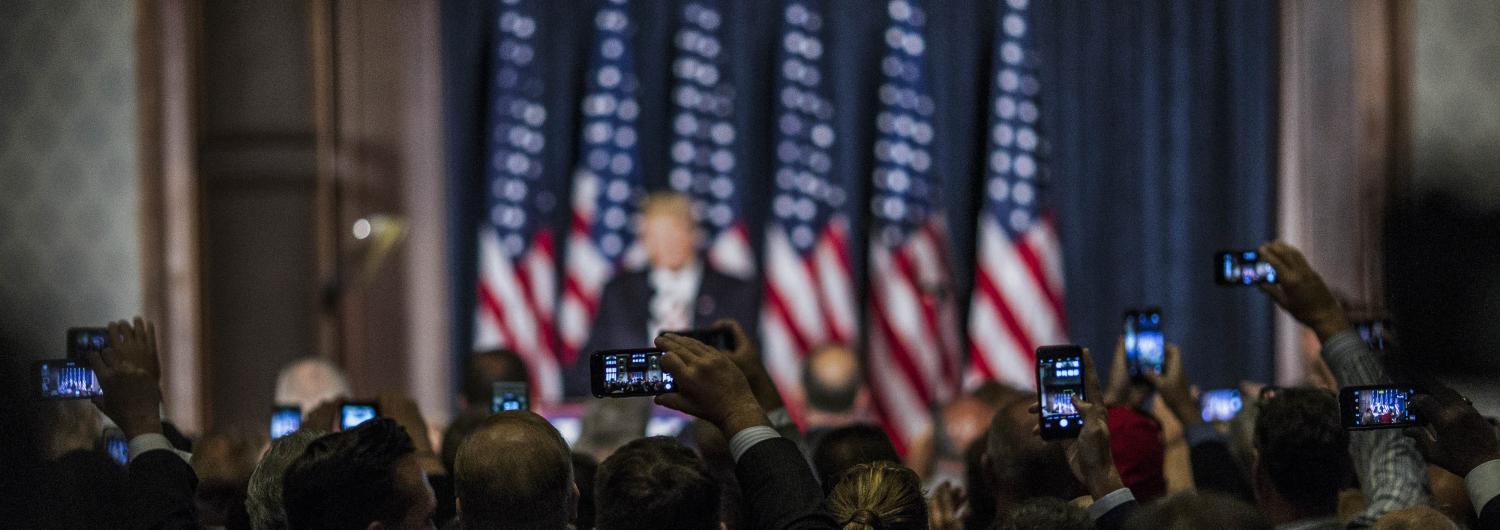As Donald Trump transitions from campaigner to presidential policy-maker, immigration and trade have dominated the economic news. Yet the broad ‘America-first’ principle threatens other important elements of international cooperation. This includes the United Nations and its many agencies, however this post addresses the impact of the Trump presidency on just two economic institutions: the International Monetary fund and the Bank for International Settlements. The past decade has demonstrated the key role of these institutions, but will they be seen by the new administration as useful vehicles for the pursuit of American self-interest through international cooperation, or as sovereignty-infringing interference in a narrowly-focused domestic agenda? An executive order addressing these issues has been foreshadowed, but has not yet been issued.
It seems most unlikely that President Trump would take America out of the IMF. There are, however, two concerns. The first is that he would use the American veto to align Fund lending more directly with his perceptions of American self-interest. Of course America’s interests have always been a powerful component in Fund decisions, but this might be done more blatantly than in the past, for instance to limit lending to countries not in favour, either because of their politics or their economic regimes. Just suppose China has the often-foretold financial crisis and (much less likely) asked for Fund assistance: how sympathetic would the US be to China’s plight?
A second concern is more immediate. Starting with his domestic focus and strong opinions about the virtuous discipline of market forces, President Trump may not be in favour of the very large Fund rescue programs which have become routine. Mexico in 1995; Turkey in 2001; Brazil in 2002; the European peripheral states beginning with Greece in 2010 and Ukraine in 2017; these were all extraordinarily large Fund programs by earlier standards. After the controversial 2010 Greek program (where the Fund provided large assistance despite a widespread belief that Greek debt was unsustainable), it was US congressional pressure that forced a reversion to tighter lending criteria. Trump’s influence is likely to take the Fund further in the same direction. His views on budget priorities will constrain America from providing further IMF funding or agreeing to quota increases.
Scepticism about some of these very large Fund programs may well be justified. But when economic crisis threatens in a world of highly volatile international capital, the international lender-of-last-resort has to have deep pockets. One element of the post-crisis reforms was to put in place what in effect are lines-of-credit from the Fund for countries deemed to be financially fragile. These post-2008 programs have already earmarked 70% of the Fund’s available lending capacity. There is little doubt that a tightening of America’s purse-strings combined with scepticism about Fund programs would require a substantial rethink of the Fund’s operations.
There are few substitutes for the Fund’s emergency programs. The European Stability Mechanism can help where the problem is within the European Union. The Chiang Mai Initiative Multilateralisation can help in Asia in theory, but in practice has been unable to provide assistance so far. Central bank swaps (in which the US Federal Reserve provides very large dollar liquidity to other central banks) were decisive in helping South Korea in 2008 and played a vital role in maintaining European bank liquidity during the 2008 crisis, but a Trump administration (working through its impending appointments to the Fed Board) is far more likely to limit these swaps rather than expand the coverage.
Enlarging the Fund’s contingency programs was not the only response to the lessons of 2008. The eight years since then have seen radical reform of financial supervision, boosting bank capital and redefining how banks (and other financial institutions) operate. The hub of this reform has been the Bank for International Settlements in Basel, where the bank supervisors and the Financial Stability Forum have been hammering out internationally consistent (if not quite uniform) rules to keep the financial sector safe. Prudential rules need to have a high degree of cross-border consistency: otherwise sharp-pencil financiers will shift their potentially destabilising practices into the least-regulated jurisdictions, with countries competing with each other to attract financiers, in a race-to-the-bottom of regulatory insouciance.
On past indications, President Trump will throw a spanner into the labored negotiations towards Basel III, still not quite finalised. Within the US Congress there is widespread support for such regulatory back-sliding, and Wall Street is rubbing its hands in glee at the prospect of substantial winding-back of the Dodd-Frank Act, with its profit-sapping restrictions on what financial institutions can do. Dodd-Frank has enforced necessary reforms, which some experts see as still too lenient. Whatever the causes of the 2008 crisis, the wafer-thin capitalisation of financial institutions made them vulnerable to the sort of shocks that hit financial sectors, with painful regularity, each decade or two. The detailed dialogue in Basel has devised regulations to reduce the probability of problems and increase the ability to handle a crisis. This hard-won coordination is now at substantial risk.
Overall, what is the likely outcome of President Trump’s new-broom? The fact that he has not yet issued the foreshadowed executive order gives some hope that the Fund might be spared the worst aspects of Trump’s pre-election thinking. Trump’s economic advisors, many from Wall Street, will recall that the Fund has been a powerful contributor to international economic stability. They know that this is not only in America’s interests, but that Wall Street has often been a beneficiary of Fund bail-outs of foreign creditors. On the other hand, the Basel-based initiatives to force banks into a less-risky operational framework (implemented in the US via the Dodd-Frank Act) are unlikely to remain unaffected. The threat to the global economy is not imminent: memories of 2008 still restrain the risk-takers. But financial crises have a habit of recurring when memories fade, and the assurance of a strong internationally coordinated prudential framework will be sorely missed.
